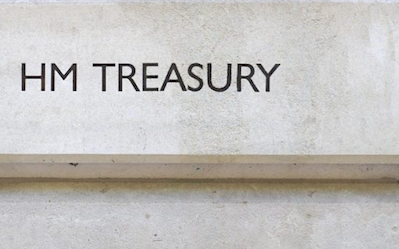By Mark McSherry
UK central government borrowing in the financial year-to-January 2024 was £96.6 billion, £3.1 billion less than in the same 10-month period a year ago, according to the UK’s Office for National Statistics (ONS).
” … this is the first time in the present financial year that year-to-date borrowing has been lower than in the equivalent period in the last financial year, partly because central government receipts have been revised,” said the ONS.
UK central government borrowing is forecast to reach £123.9 billion by the end of the financial year.
The UK’s public sector net debt excluding public sector banks was £2.646 trillion at the end of January 2024 and was provisionally estimated at around 96.5% of the UK’s annual gross domestic product (GDP).
“… this is 1.8 percentage points higher than in January 2023 and remains at levels last seen in the early 1960s,” said the ONS.
Public sector net borrowing excluding public sector banks in January 2024 was in surplus by £16.7 billion, more than double the surplus of January 2023 and the largest monthly surplus since monthly records began in 1993 in nominal terms.
“Each January tax receipts are always higher than in other months, owing to receipts from self-assessed taxes; combined self-assessed income and capital gains tax receipts were £33.0 billion, £1.8 billion less than a year earlier,” said the ONS.
In January 2024, the interest payable on central government debt was £4.4 billion, £3.5 billion less than in January 2023.
“This was the lowest January interest payable since 2021 and £2.7 billion less than the £7.1 billion forecast by the OBR,” said the ONS.
In the 10 months to January 2024, the UK central government’s income was £820.9 billion, an increase of £44.4 billion compared with the same period a year ago. Of this, tax receipts increased by £39.4 billion, to £621.7 billion and compulsory social contributions — largely National Insurance Contributions — increased by £2.0 billion to £148.3 billion.
However, this increase in income was exceeded by a £67.5 billion increase in total expenditure, which rose to £944.0 billion over the same period.
